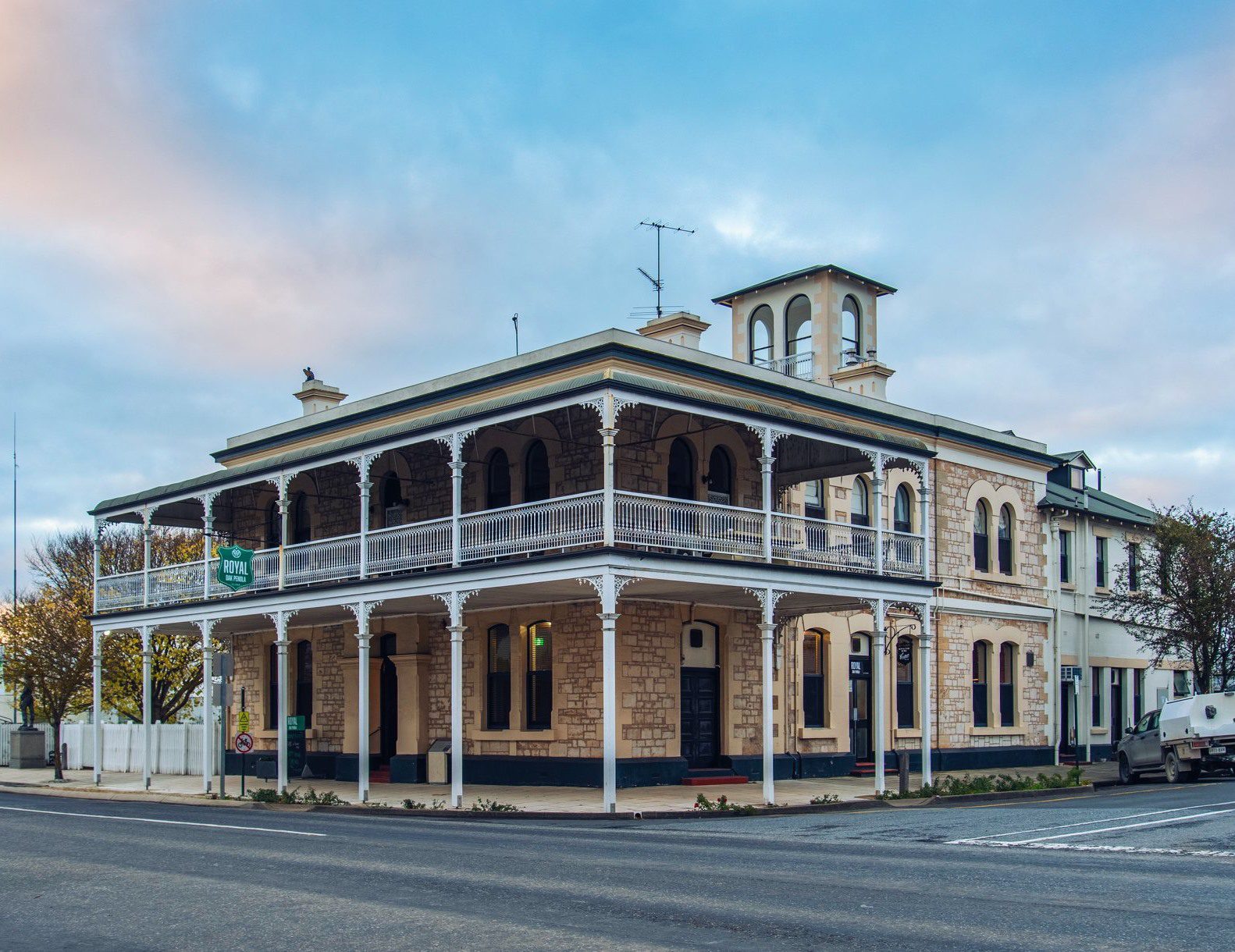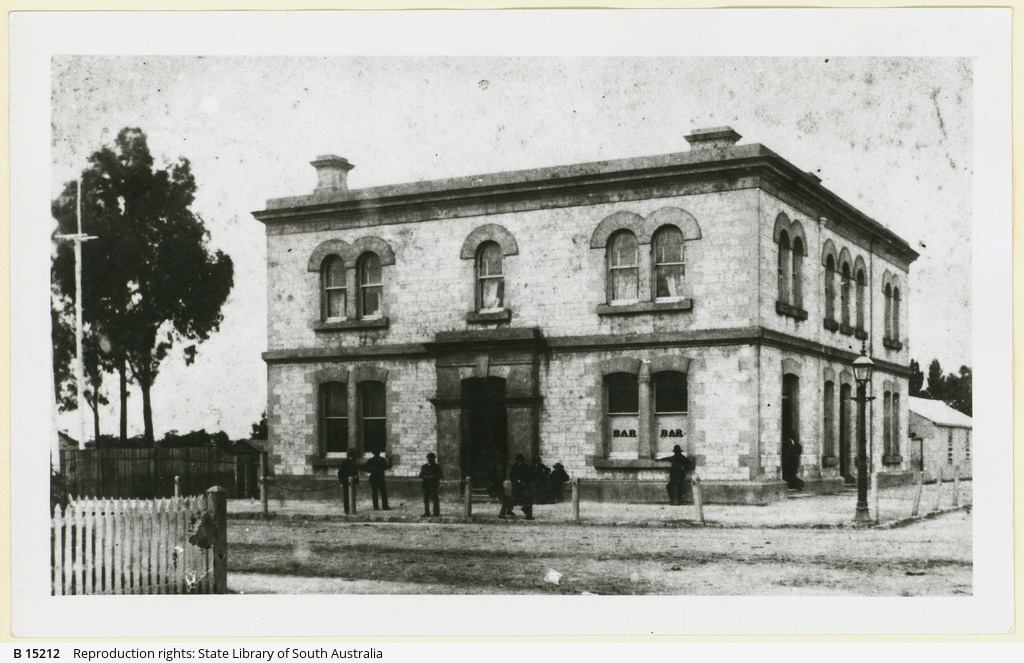
We Invented Penola!
The Royal Oak Penola
The ROAK is the complete Country pub. Offering quality food, a wide range of South Australia beers and a wine list, worthy of a world-famous region.
Whether it is out front bar, saloon, dining room of beer garden, we have a spot to suit everyone. Venture into our bottle shop to see our selection of beer, wine and spirits.
Exploring the town or need a quick stop over, we have nine historic rooms available.
What else would you like to know? Contact us here – we’re ready to help.

History
The Royal Oak Hotel gave the town of Penola its name. In the language of the local Pinchunga Aboriginal people, ‘Pena’ meant wood and ‘oorla’ meant house. Consequently, as an early translator recorded: ‘Penola: Pena oorla; wooden house, referring evidently to the original weatherboard “Royal Oak” public house.’
Alexander Cameron, the pioneer settler of the immediate neighbourhood, established the original Royal Oak Hotel in his first station hut that he had built soon after his arrival on 19 December 1845. The name he chose, referring to the Clan Cameron emblem, reflects his Jacobite sympathies and dates back to the legendary Royal Oak Tree at Boscobel, Shropshire, in which Charles II hid after his Civil War defeat by Cromwell in 1651.
Cameron was granted a Publicans’ General License (No 175) for his hotel on 16 November 1848, and a neighbour remembered: ‘When he first saw it there was a cask of rum on a block of wood, and a pannikin chained to it… Spirits were dispensed on a wholesale basis.’ However, the Government clearly expected higher standards:
Notice is hereby given, that it is required that all public-houses situate more than ten miles from Adelaide shall contain a sitting-room and not less than two sleeping-rooms, for the accommodation of travellers… and there shall be a stable on the premises capable of containing at least six horses, with a sufficient quantity of corn and hay.
Another regulation required:
The licensee would sell none other than good and wholesome liquors, without fraudulently diluting or adulterating the same, and not introduce or permit bull baiting, dog or cock fighting, gambling or any other disorder or disturbance.
Cameron obtained freehold title to 80 acres around his hotel on 4 April 1850 and immediately proceeded to lay out and found the private township of Penola. A statue commemorating his initiative, by the noted South Australian sculptor John Dowie, stands proudly in the main street beside the Royal Oak.
In April 1851 Cameron transferred his licence to John Bowden, and the hotel soon became the centre of racing in the district, with the first meeting probably being held early in 1852. One of the participants remembered:
The Scotchmen used to muster in great force. Mr Alexander Cameron, often called the King of Penola, astonished a great many at one of these meetings by driving through the township to the racecourse with a piper in full blast and ribbons flying.
Another early steeplechase rider, Police Trooper Adam Lindsay Gordon, who arrived at Penola in 1854, reputedly enjoyed the challenge of leaping his horse over the Royal Oak hitching rail, with varying degrees of success. He was less enthusiastic, however, when his official duties required him to remove drunks by wheelbarrow to the nearby police lock-up.
In the same year, the mail service from Adelaide extended to Penola and coaches began calling at the Royal Oak, which consequently became the town’s first post office, with John Bowden its postmaster. It was subsequently recorded: ‘The private township made rapid strides under the supervision of Mr Bowden, who was a man of untiring energy, and Penola soon became a place of first-class importance in the South-East.’
In 1860, eighteen year-old Mary MacKillop become the governess to the children of her aunt Margaret (née MacKillop) and uncle Alexander Cameron, who had moved out of the bustling township to live at Penola Station. When Mary later returned in 1866 to co-found a uniquely Australian teaching order, the Sisters of St Joseph, she was welcomed to the Royal Oak Hotel by her maternal uncle, Donald McDonald, and his wife Eliza. Erected in 1861, this was the second, wooden building, of which Donald was the licensee from 1864 to 1880.
In 1870 Alexander Cameron engaged the well known architect William T Gore to design a new two-storey hotel ‘of cut stone… replete with every modern appliance and convenience for the comfort of visitors’. Recognised as ‘one of the handsomest buildings in the South-East’, it was opened in time for the festivities of the Penola Races in February 1873.
Mary MacKillop would have stayed in this building with her uncle and aunt during December 1876 when she returned to Penola in the hope of achieving constitutional reconciliation with her former mentor, Father Julian Edmund Tenison Woods. Sadly, the attempt was unsuccessful and she wrote: ‘We parted in friendship and affection, but in deep sorrow and disappointment on my part.’
Joseph Darwent became the licensee in September 1880, the year before Alexander Cameron’s death, and was present in the dining room at a meeting of the Penola Agricultural Bureau on the evening of Monday 14 April 1890 when John Riddoch announced: ‘Ever since I have been interested in this neighbourhood, which is now 29 years, I have been a firm believer that a great deal of the country was well suited for vineyards and fruit growing.’
Three months later, on 31 July 1890, the Royal Oak Hotel became the birthplace of Coonawarra, with The Border Watch reporting:
A great amount of interest was felt in Penola on Thursday as to what success would attend the opening of the fruit colony. The drawing for choice of blocks took place at the Royal Oak Hotel in the morning… about 25 blocks have been taken up… So far the experiment is regarded as a success.
